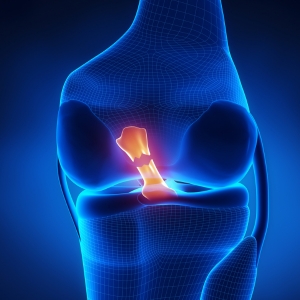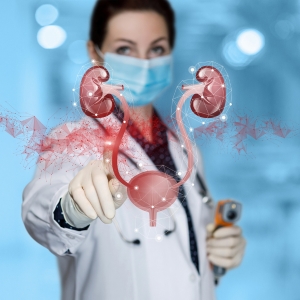Urinary tract infections are a common problem for women. They can cause uncomfortable symptoms like a frequent urge to urinate, burning sensation when urinating, and pain in the lower abdomen, back and sides. In severe cases, there could also be fever and blood in the urine.
Frequent infections can be rather debilitating, causing disruption to daily plans, sick time from work and the psychological burden related to sexual activity.
Urinary tract infections are caused by bacteria which normally exist on the skin or in the bowel that enter via the urethra, the opening where urine leaves the body.
Once bacteria are in the urinary tract, they can travel up causing infection in the bladder or even the kidneys. Infections are more commonly seen in women than in men, this is due to the naturally shorter urethra.

Causes and risk factors
Lifestyle, hygiene habits and certain long-term medical conditions can predispose women to urinary tract infection. These include:
- Not drinking enough water: the longer the urine stays in the bladder, the easier bacteria will grow
- Wiping the bottom from back to front after using the bathroom: this brings bacteria in the bowel closer to the urethra
- Menopause: hormone changes affect the balance of bacterial growth in the vagina
- Diabetes: higher sugar level in the urine favours bacterial growth, diabetes also impairs the immunity, a natural defence to bacterial infection
- Being sexually active: having a new sexual partner also increases risk
Signs and Symptoms
Infection of the bladder may include the following symptoms:
- Pain, stinging and burning sensation when passing urine
- Smelly or cloudy urine
- Having the urge to pass urine too frequently
- Sensation of incomplete bladder emptying
- Haematuria: blood in urine
- Pain at the lower abdomen
Infection of the kidneys may include the following symptoms:
- Pain at the flank region, the area below the ribs and above the pelvis
- Radiation of pain down into the thigh or vulva
- Fever
- Nausea
Residual symptoms after an infection may last up to 2 months, as the bladder becomes more sensitive. These symptoms are very similar to those of a new infection, sudden urges to pass urine, having to pass urine very frequently despite a small volume, and a difficult-to-describe discomfort while passing urine.
Short of laboratory proof, these symptoms are often managed with another course of antibiotics, which sometimes lead to antibiotic resistance.
Investigation and diagnosis
The diagnosis of urinary tract infection is often apparent based on history and urine analysis. Investigations are often necessary for choice of treatment, to exclude underlying conditions which may predispose infection, and for future prevention measures.
Tests may include:
- Urine analysis: this will reveal the presence of white blood cells and bacteria in the urine, and the sensitivity result will guide the choice of appropriate antibiotics. Presence of red blood cells in the urine is a common observation, which will usually resolve upon repeated analysis 1 to 2 months later. Presence of red blood cells in urine on repeated testing requires further investigation.
- Imaging: ultrasound or CT scan may help to look for underlying structural abnormality which may have caused the infection in the first place, the most common reasons include urinary stone, and structural abnormality of the urinary tract.
- Flow rate assessment: a slow flow rate may indicate the possibility of outflow obstruction or a problem with the bladder contraction.
- Cystoscopy: during this endoscopy examination, a fine instrument with camera at the tip will be inserted into the urethra and bladder, this is mainly to look for any outflow obstruction and bladder abnormality
Treatment
In mild cases, a urinary tract infection will resolve in a few days with increased water intake and close monitoring. Try increasing water intake to up to 2 litres per day. Dilution of urine will help flush out infected urine and reduce irritation to the bladder. It is best to avoid taking antibiotics in very mild cases.
Antibiotics are usually necessary for moderate to severe cases, or when the symptoms persist for mild cases.
If antibiotics are prescribed, the usual duration is 3-14 days, depending on the choice and medication and degree of infection. It is important to finish the course of antibiotics, even if your symptoms go away. Emerging evidence suggests prescribing the shortest possible course of antibiotics, thus reducing the chance of antibiotic resistance. In selected cases, a single dose of appropriate antibiotics is available.
Recurrent urinary tract infections are common and can lead to more serious problems if they are not treated promptly.
To manage recurrent infections, it is important to rule out any underlying cause. In a minority of patients with repeated infections, structural or functional abnormalities can be identified.
As the infections may be due to different organisms, or persistence of the same organism, it is important to do a urine culture to track the types of bacteria.

Prevention of repeated infections
Urinary tract infections can come in clusters. After one episode of infection, the inflamed and damaged bladder lining is susceptible to another infection. It is especially important to adopt preventive measures shortly after an infection.
Following are non-drug measures to help prevent recurrent infections:
- Wiping from front to back, after using the bathroom
- Empty the bladder regularly
- Keep good personal hygiene
- Increase your water intake to at least 2 litres per day
- Go to the toilet to pass urine after having sex: although the evidence supporting this is weak, there is certainly no harm in doing so
Post-coital antibiotic prophylaxis has been used to prevent infections which are clearly associated with sexual intercourse.
Despite being controversial, health supplements can be useful for certain individuals, these include:
- D-mannose
- Cranberry extracts
The content varies a lot among different brands, so it is important to look at the ingredient labels to understand more.
If you have recurrent urinary tract infections, talk to a doctor. With the right assessment and treatment, you can end the cycle of infections once and for all.
To arrange an appointment call 2537 7407
Articles on this website are informative only and not intended to be a substitute for professional medical advice, diagnosis or treatment. They should not be relied upon for specific medical advice.

Information provided by:
Dr. KAN Wai Man, Raymond, Specialist in Urology







